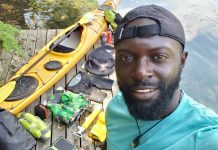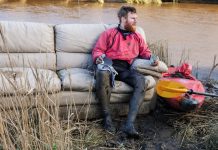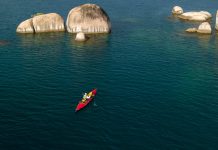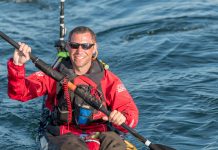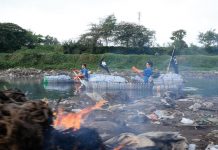Last summer, Mario Rigby set out to kayak the length of one of the Great Lakes. A member of the prestigious Explorer’s Club and a fellow at the Royal Canadian Geographic Society, Rigby is a full-time explorer. He’s previously cycled across Canada and completed a solo, two-year walk across Africa, 7,500 miles from Cape Town, South Africa, to Cairo, Egypt. But during the pandemic he set out on a new kind of journey.
5 questions for Mario Rigby on paddling Lake Ontario
Rigby had never been in a sit-inside kayak until he set out from the Hamilton harbor on Lake Ontario last June. His impromptu trip aimed to promote local travel in a year where regional restrictions were the norm, advocate for diversity in outdoor adventure, and raise money for MyStand, a charity for at-risk youth. During the 220-mile, 20-day paddle, he camped on shorelines and weathered a half-dozen capsizes and treacherous storms. Far more important than the miles paddled were the perceptions he challenged along the way.
View this post on Instagram
Q1 When did you decide to do this trip?
I was supposed to go to Baffin Island in 2020 and do an expedition around how climate change is affecting local communities, and we were going to make a short film about it. But, you know—COVID. So, I decided to do a local expedition. I didn’t know how to paddle a kayak. I do large expeditions once every three years; between those I try to do mini expeditions.
Q2 What has the outdoor community’s response been?
Finding sponsors in 2015 for my African expedition was pretty much impossible. I reached out to hundreds of people, magazines, organizations and companies. I didn’t look like a quintessential explorer, and my message was different—I’m not trying to be the first or the best or the fastest.
I feel like this is a very Western perspective of what is successful; you have to be the ultimate at everything. I don’t think that’s true. The definition of an explorer needs some revision. The response to this trip has been intense. I have a team just for inbound requests.
Q3 Who belongs outdoors?
Everyone. The first challenge of being Black in the outdoor community is not being taken seriously. Some people take things seriously because of a certain voice or look. They’ll say, “Oh, you’re not saying these acronyms properly.” There’s elitism and it’s evident in just the way people speak.
We judge people when they don’t know the full names for certain things or when they’re not paying high prices for outdoor gear. That bothers me because I come from a background where I couldn’t afford gear like that; it was completely out of reach. When I look at the price tags of jackets, I’m like, are you kidding me? Every single human being belongs in the outdoor space, but attitudes and cost can be barriers.
View this post on Instagram
Q4 Why should everyone advocate for a more inclusive outdoor industry?
If you have more inclusion and diversity in the outdoors, more people are interested in helping the environment. To me, it’s the biggest conundrum. Organizations and companies focus their marketing on a small group of individuals. But all those eco or green messages are only going to reach a small percentage of the population. Why not reach out to the masses?
The only way to do that is to understand other cultures and bring them on board. If people can’t experience what nature has to offer, of course, they’re not going to be interested in protecting it.
Q5 Where is your next expedition?
I’m planning future expeditions. One is to retrace the West African slave trade. I’ll find out where my DNA comes from by starting in Africa and retracing the route to America. It’ll be solo and human- or wind-powered.
“You don’t have to travel around the world to find adventure,” says explorer Mario Rigby, who encourages sustainable, human-powered forms of exploration. | Feature photo: Mario Rigby

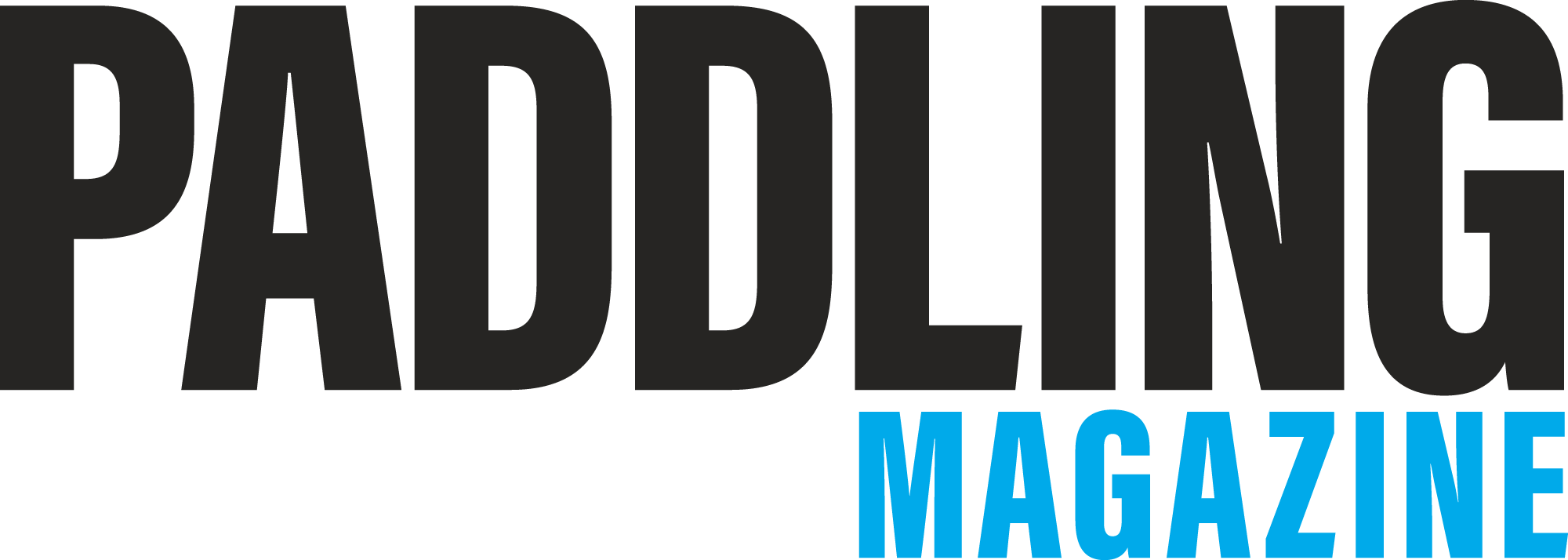

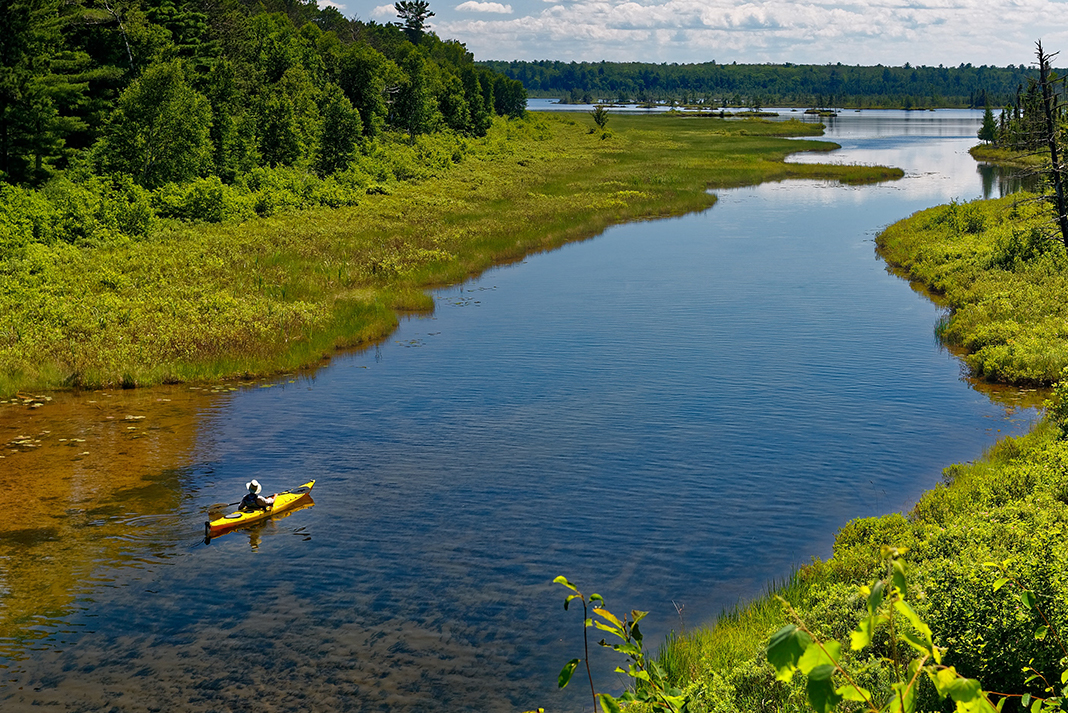
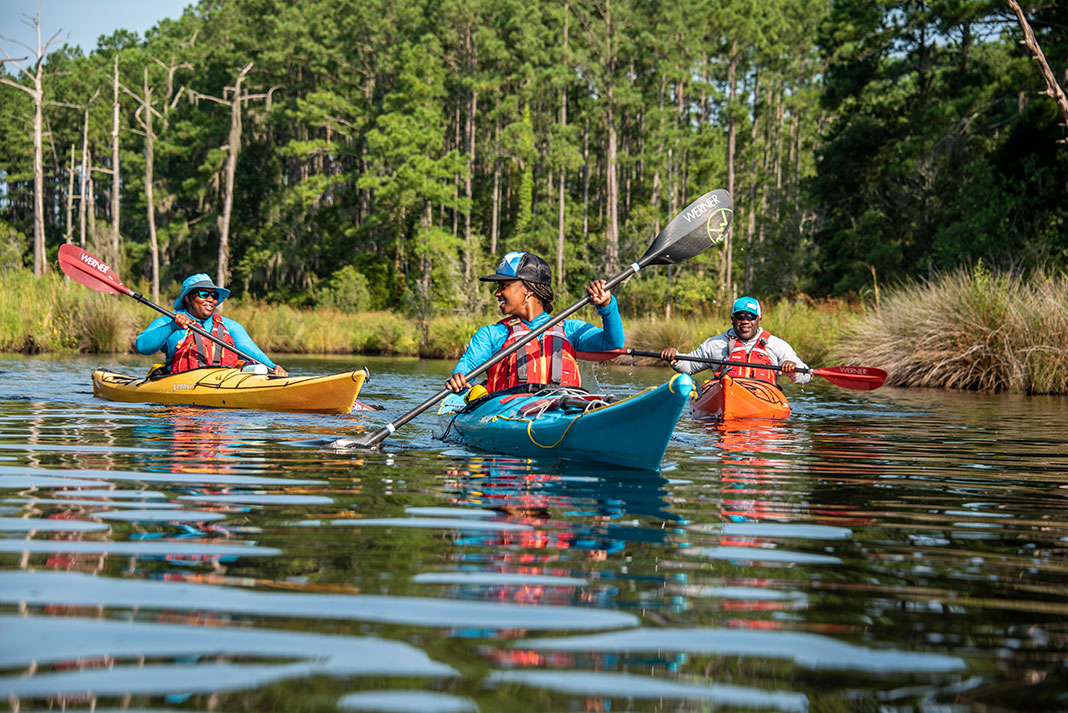
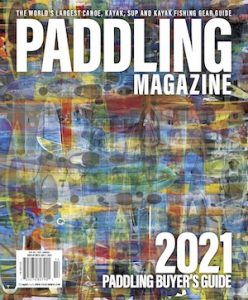 This article was first published in Issue 63 of Paddling Magazine.
This article was first published in Issue 63 of Paddling Magazine. 